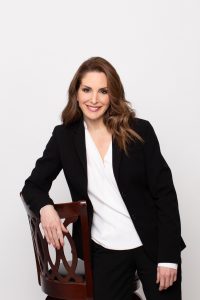How can you differentiate between disordered eating and an eating disorder? What signs should you look for in your lifestyle if you think you are suffering from either one of these? How can having an awareness of what an eating disorder is or isn’t help you in your life?
In this podcast episode, I speak about disordered eating VS. an eating disorder, and how you can differentiate between the 2.
IN THIS PODCAST
- First off, what is non-disordered eating?
- What is disordered eating?
- Now, what is an eating disorder?
First off, what is non-disordered eating?
Non-disordered eating is when a person eats food simply because they are physically hungry, and they stop eating when they are satisfied.
They incorporate a variety of foods into their diet and eat what they want to eat when they want to eat it. Food, to them, really is fuel and nutrition.
These people also eat when they are satisfied for the sake of enjoyment, such as eating a slice of cake at a wedding even though they had dinner not too long ago. They are not going to berate themselves for that slice they had past feeling satisfied.
From this definition, we can understand that people who suffer from disordered eating eat for reasons besides hunger and they may eat at times, for example, when they are bored or stressed.
What is disordered eating?
They also may have stopped eating certain foods, and therefore may have cut out an entire food group for instance maybe they no longer eat carbs or fat. They often times claim that they are doing it for “health reasons”, yet they usually don’t have an underlying health condition that would require them to make such a dietary change.
They may have the same thing for lunch every day or measure out everything they are going to eat and seem to have a preoccupation with weight-loss and exercise, but overall, none of this interferes with or keeps them from living their lives.
For some people, this is how they choose to live their lives, but for other people, these types of relationships around food are what can develop into a full-blown eating disorder.
Unless you’re someone who fits the description of not having disordered eating, then it’s really important to take a good, hard look at your patterns, behaviors and relationships to food and exercise because doing this is going to help distinguish between disordered eating and having an eating disorder.
Now, what is an eating disorder?
An eating disorder is what someone suffers from when their entire life, all their thoughts, and motivations to their behaviors are centered around food and body image.
For example, this is when they will only eat certain foods, or cut out certain foods, and may abstain from eating altogether if they cannot have those specific food items on their plate.
Another example is when their patterns of eating do not specifically match their lifestyle, for instance, if they are binge eating a few times a week but are they are not partaking in demanding sports.
The life of someone who has an eating disorder, it’s simply consumed by the illness. The level of obsession around eating disorder thoughts and behaviors, that can distinguish disordered eating from an eating disorder.
While it can be normal to think about food when you are hungry, or prep your meals for a busy week, for someone who struggles with an eating disorder these thoughts are all-consuming.
USEFUL LINKS
MEET DR. CRISTINA CASTAGNINI

I am a licensed Psychologist and Certified Eating Disorder Specialist.
While I may have over 20 years of clinical experience, what I also have is the experience of having been a patient who had an eating disorder as well.
One thing that I never had during all of my treatment was someone who could look me in the eye and honestly say to me "hey, I've been there. I understand".
Going through treatment for an eating disorder is one of the hardest and scariest things to do. I remember being asked to do things that scared me. Things I now know ultimately helped me to get better. But, at the time, I had serious doubts and fears about it.
If even one of my providers had been able to tell me "I know it's scary, but I had to go through that part too. Here's what will probably happen...." then perhaps I would not have gone in and out of treatment so many times.
My own experience ultimately led me to specialize in treating eating disorders. I wanted to be the therapist I never had; the one who "got it".
I will be giving you my perspective and information as an expert and clinician who has been treating patients for over 2 decades.
But don't just take my word for it...keep listening to hear the truly informative insights and knowledge guest experts have to share.
I am so happy you are here!
THANKS FOR LISTENING
Did you enjoy this podcast? Feel free to comment below and share this podcast on social media! You can also leave a review of
Behind The Bite on Apple Podcasts (previously) iTunes and subscribe!
 I am a licensed Psychologist and Certified Eating Disorder Specialist.
While I may have over 20 years of clinical experience, what I also have is the experience of having been a patient who had an eating disorder as well.
One thing that I never had during all of my treatment was someone who could look me in the eye and honestly say to me "hey, I've been there. I understand".
Going through treatment for an eating disorder is one of the hardest and scariest things to do. I remember being asked to do things that scared me. Things I now know ultimately helped me to get better. But, at the time, I had serious doubts and fears about it.
If even one of my providers had been able to tell me "I know it's scary, but I had to go through that part too. Here's what will probably happen...." then perhaps I would not have gone in and out of treatment so many times.
My own experience ultimately led me to specialize in treating eating disorders. I wanted to be the therapist I never had; the one who "got it".
I will be giving you my perspective and information as an expert and clinician who has been treating patients for over 2 decades.
But don't just take my word for it...keep listening to hear the truly informative insights and knowledge guest experts have to share.
I am so happy you are here!
I am a licensed Psychologist and Certified Eating Disorder Specialist.
While I may have over 20 years of clinical experience, what I also have is the experience of having been a patient who had an eating disorder as well.
One thing that I never had during all of my treatment was someone who could look me in the eye and honestly say to me "hey, I've been there. I understand".
Going through treatment for an eating disorder is one of the hardest and scariest things to do. I remember being asked to do things that scared me. Things I now know ultimately helped me to get better. But, at the time, I had serious doubts and fears about it.
If even one of my providers had been able to tell me "I know it's scary, but I had to go through that part too. Here's what will probably happen...." then perhaps I would not have gone in and out of treatment so many times.
My own experience ultimately led me to specialize in treating eating disorders. I wanted to be the therapist I never had; the one who "got it".
I will be giving you my perspective and information as an expert and clinician who has been treating patients for over 2 decades.
But don't just take my word for it...keep listening to hear the truly informative insights and knowledge guest experts have to share.
I am so happy you are here!


Comments